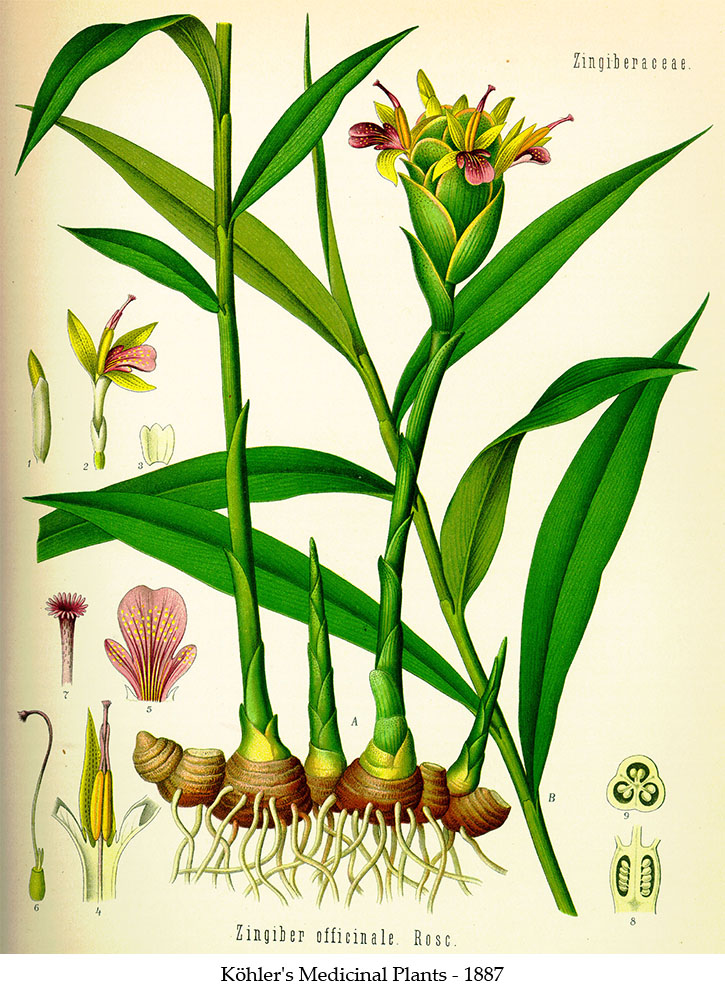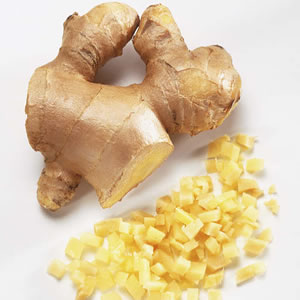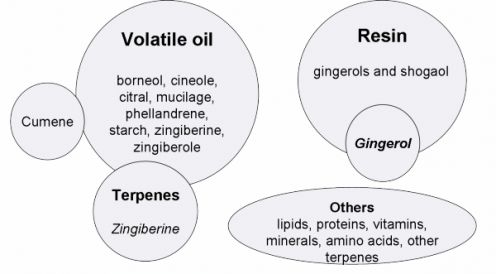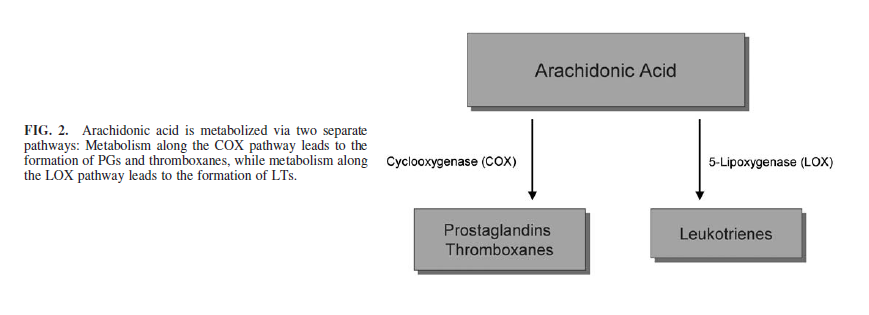What is ginger?
Ginger, aka Zingiber officinale, is a rhizome, a thick underground stem that sprouts roots and shoots.

Each ginger plant can grow up to three feet high and produce 2-5 sections of ginger, which can be harvested year-round. After a ginger root is broken off from the main plant it is washed and dried in the sun.
Once dried, it can be used for cooking or medicinal purposes.

Ginger as medicine
Ginger is one of the oldest medicinal foods.
Since the herb originated in Southeast Asia, it’s not surprising that ancient Chinese and Indian healers have made ginger a part of their toolkit for thousands of years.
Ayurvedic texts credit ginger as a “universal great medicine”. An old Indian proverb says that “everything good is found in ginger.” Traditional Chinese medicine holds that ginger “restores devastated yang” and “expels cold”.
Currently, since ginger grows best in warm, damp areas, it’s currently cultivated in China, India, Australia, and Jamaica. China and India produce most of the world’s ginger, with half being produced on India’s Malabar Coast.
Today, ginger is still used as food and medicine. Modern Western science has confirmed its usefulness for treating a variety of conditions.
Zingerone, shogaols, gingerols, and volatile oils give ginger its distinct aroma and flavour, as well as its medical properties. The amount of these therapeutic compounds in ginger is determined by geography, time of harvest, and processing methods.

Anti-inflammatory & anti-oxidant
Consuming ginger may help to decrease muscle soreness, inflammation, and relieve osteoarthritis pain.
It’s far from a sure thing (data is mixed), but one theory is that ginger may inhibit COX (cyclooxygenase) and LOX (lipooxygenase), making it anti-inflammatory. NSAIDs work in a similar fashion, but only inhibit COX (leading to upregulation of LOX).
Since ginger appears to inhibit both COX and LOX, it can lead to a lower production of chemical messengers like LTs (leukotrienes), TNF (tumor necrosis factor), and PGs (prostaglandins). This occurs systemically and at the site of inflammation, helping with pain relief.

Unlike NSAIDs, ginger doesn’t appear to harm the stomach or kidneys (in normal amounts), and may even have anti-ulcer properties.
Nausea
Ginger might help decrease nausea from chemotherapy, motion, pregnancy, and surgery. But data is mixed. It seems most effective for nausea related to pregnancy and surgery.
Ginger works by inhibiting serotonin receptors, exerting anti-nausea effects at both the brain and gut level. It may also decrease the release of vasopressin, diminishing nausea related to motion.
Digestion
Ginger has been valued as a digestive aid since the Middle Ages. Ginger can calm over-active stomach contractions, allowing stomach contents to enter the intestines (this may also help to decrease heartburn). It also contains an enzyme called zingibain that may assist in protein digestion.
Blood pressure & asthma
Animal studies have shown that ginger might help to control high blood pressure.
It’s thought that ginger may act (in a much weaker way) similarly to calcium channel blockers. Over several months, ginger may promote smooth muscle relaxation and more elastic blood vessels. Smooth muscle relaxation might also be a benefit to asthmatics. Note: these effects are based on theory and rat studies so far.
Cholesterol
In rodents, ginger can help to lower LDL cholesterol and triglycerides while raising HDL – at levels similar to conventional lipid lowering drugs. It may also decrease the liver’s production of cholesterol and increase cholesterol excretion (via bile/fecal excretion). Human trials have yet to show benefits.
Cancer
Population based studies show that those living in Southeast Asian countries have a lower incidence of cancers than folks in the Western world. It’s thought that some of the plants they consume have anti-cancer properties; ginger might be one of them.
Tumor promotion is linked with inflammation and oxidative stress. Thus, the anti-inflammatory and anti-oxidative properties of ginger could play a role in cancer prevention. Further, ginger might activate a tumor suppressor gene and downregulate a gene that plays a role in metastasis.
However, anti-cancer data on ginger has only been demonstrated in test tubes and animals so far.
Anti-bacterial
Ginger might help destroy oral pathogens and H. pylori (the bacteria that causes stomach ulcers), making it anti-bacterial.
Migraines
Ginger may help to reduce migraine headaches (pain and frequency), similar to some prescription medications.
Miscellaneous
You can even add ginger to baths and foot soaks.
Because of ginger’s anti-inflammatory and anti-bacterial action, it may help keep skin clear and free of blemishes. It may also help fight skin discolouration and aging, both when consumed and topically applied.
Ginger may help your sex life. The famous Arab physician Avicenna wrote that ginger “increases lustful yearnings”, and ginger appears in the Kama Sutra. Rat studies confirm that ginger may help increase testosterone.
Drug interactions
It’s possible that ginger could interact with calcium channel blockers and drugs that lower blood sugar. There have been reports showing interactions with blood thinning drugs. Five grams (or more) of ginger has anti-platelet action.
If you’re taking ginger medicinally, consider using standardized capsules or tablets, so that you can be sure of the dose you’re getting.
Consuming a lot of ginger at once (like, eating an entire knob of it) might result in heartburn, diarrhea, and mouth irritation. Besides that – ginger seems to be safe. After all, you could easily consume a fair bit of ginger normally in foods (such as pickled ginger with sushi).
Ginger as food
Choose firm, shiny-skinned and smooth knobs. Don’t buy roots with sprouts.
Peeled and sealed, ginger will keep in the fridge for about 2 weeks. It will keep unpeeled in a dark, cool place for weeks. Freeze if storing for long periods.
Peel ginger before using it; don’t consume the skin.
You can use ginger fresh, dried, crystallized, preserved, or pickled.
Use ginger anywhere you need some zing. This includes dipping sauces, dressings, rubs, pesto, teas, and even Super Shakes. To convert a recipe from dried ginger, substitute in 6 parts fresh grated ginger for 1 part of ground.
Peeling ginger
Making ginger tea
Gourmet Nutrition includes many ginger recipes, such as:
- Fruity chicken skewers (pg. 116)
- Carrot, orange and ginger soup (pg. 134)
- Butternut squash and turkey soup (pg. 138)
- Miso corn chowder with salmon (pg. 170)
- Spinach and black bean soup with prawns (pg. 174)
- Miso vegetable brown rice (pg. 198)
- Curry coconut chickpeas (pg. 200)
- Soy ginger lentils with baby bok choy (pg. 204)
- Chickpea cakes (pg. 212)
- Asian dressing (pg. 242)
Summary and recommendations
Consuming 1-2 grams of ginger might help with nausea, muscle soreness, and digestion. Beyond that, ginger has the potential to promote overall health, but the data is limited. Ginger doesn’t appear to cause any health problems.
Don’t exceed 4 grams of ginger per day from food, drink and supplements.
Check with your doctor if pregnant, as ginger supplementation is controversial.
Extra credit
Ginger is in the same family as cardamom and turmeric.
Beta-elemene is an anti-cancer pharmaceutical derived from ginger.
In India, basil leaves combined with ginger is a popular remedy for children’s stomachaches.
The use of ginger in Asia is common because it’s believed to cleanse the body of toxins from meat dishes.
At one time in England, three pounds of ginger was the going rate for one head of cattle.
Chewing on a piece of fresh ginger might relieve a sore throat and hoarseness.
Eating slices of ginger sprinkled with salt before meals can aid digestion.
Some say that ginger is a “warming” food for the body.
Ginger is a main ingredient in kimchi.
When ginger is used in large quantities it can mask the odor of fish.
Ginger was so popular in Europe that it was used like salt and pepper. Folks even sprinkled it on beer (the origin of ginger ale).
References
Click here to view the information sources referenced in this article.
Learn more
Want to get in the best shape of your life, and stay that way for good? Check out the following 5-day body transformation courses.
The best part? They're totally free.
To check out the free courses, just click one of the links below.




Share